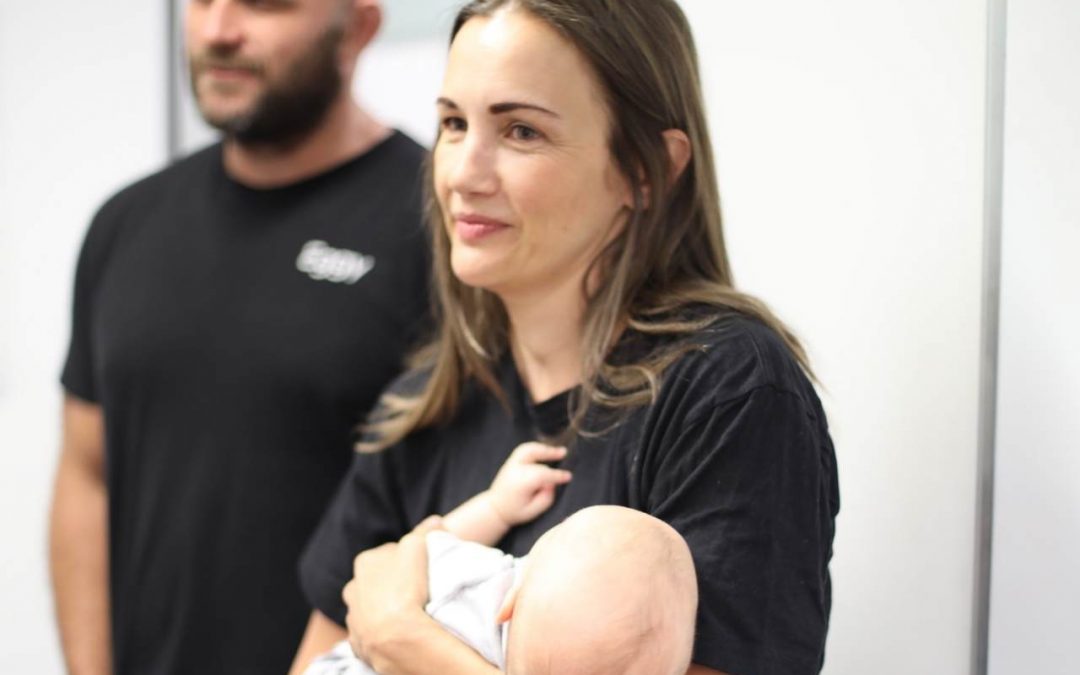Six years ago, I was blissfully unaware about the ‘mental load’. I was in my mid-30’s, wearing suits and heels to my job as a university lecturer and completing my PhD. At home, it was just my husband and I. We had a nice car and a pretty cruisy life.
Fast forward to the present and I have three kids under the age of six, and am the founder of a tech startup where I go to work in t-shirts that have either snot or Weet-bix on them, or both. Our nice car has been replaced by a 7-seater Craptiva, and all of a sudden, that cruisy life seemed like a holiday I had once been on in another lifetime.
I never really planned to be here. I did not wake up one day and decide that I am going to put everything I have on the line to build an app and become the CEO of a tech company. I did not suddenly choose to be pushed to the limit while only being able to catch just a few winks of sleep every night.
Had I known the extent and gravity of the challenges I would face in running this startup, on top of the madness that is children/school life, I probably would have given it a quick pass. However, a valuable lesson I have learnt is that we often do not realise how capable we are until we are in the trenches, in the thick of the battle. And that is where I still am right now.
In case you were unaware, the mental load is all the stuff that we harbour in our minds when keeping a household running. It’s all the thinking, planning and organising of families that is purely cognitive and brain-exploding labour.
Researchers from the University of Melbourne Have Outlined Its Distinct Characteristics
- It’s invisible – you cannot see it, but you can see its results in physical labour. Like thinking about what present to buy for that child’s birthday, and then actually having to buy it.
- It’s boundaryless – whether you’re at work, at play, or in bed, wondering where your birth certificate has disappeared to will inevitably infiltrate your thoughts.
- It’s enduring – unlike that tub of yoghurt in the fridge, it does not come with an expiry date. You pay off your car’s registration fees, and then immediately start worrying about when it is due next year.
A national study conducted earlier this year further quantified the load in terms of life admin and highlighted just how prevalent it is, especially for women and mothers.
-
Nearly 2 out of 3 mothers (65%) say they’re responsible for at least 90% of the life admin in their household
-
More than 3 in every 5 mothers (64%) spend 6 hours or more on life admin every week
-
4 out of 5 mothers (83%) say that managing life admin negatively affects their mental health
-
Around 3 out of 5 mothers (59%) are doing more life admin tasks now than they were two years ago
It is a lot, but fortunately, it is not all doom and gloom. In fact, there are more tools and resources available today to help us lighten the mental load than there have ever been before. Additionally, we have already proven our collective resilience as we have successfully navigated through the tumultuous past few years.
Now, not for one moment have I ever thought that I have all the answers or that my personal methods would be a suitable framework for everyone else. However, my best recommendations for managing this mental load are as follows:
- Understand that none of us have it all together. None of us. None.
- Use tools that help you keep on top of things and get stuff out of your head.
- Ask for help and share the load with whoever you can in your support network.
- Make time for your health in whatever ways you can.
- Do what works for you.
So yes, the mental load is very real and will probably never go away. However, there has never been a better time and opportunity to make it visible, set boundaries and give some thoughts an end date. Because even if you are unable to get back to the cruisy life you once had, you can at least give your brain some space to dream about taking a holiday.
Dr Kate Morgan is the Co-Founder and Co-CEO of Eggy. After a successful career as a corporate dietitian and health professional, Kate completed her PhD at Bond University. Along with her husband Kirk Reynoldson, Co-Founder and Co-CEO, she has been driving the growth of Eggy since 2018. Kate is a mother of three based on the Gold Coast. As a business owner and a mum, she knows the pain of life admin and how to solve it.




